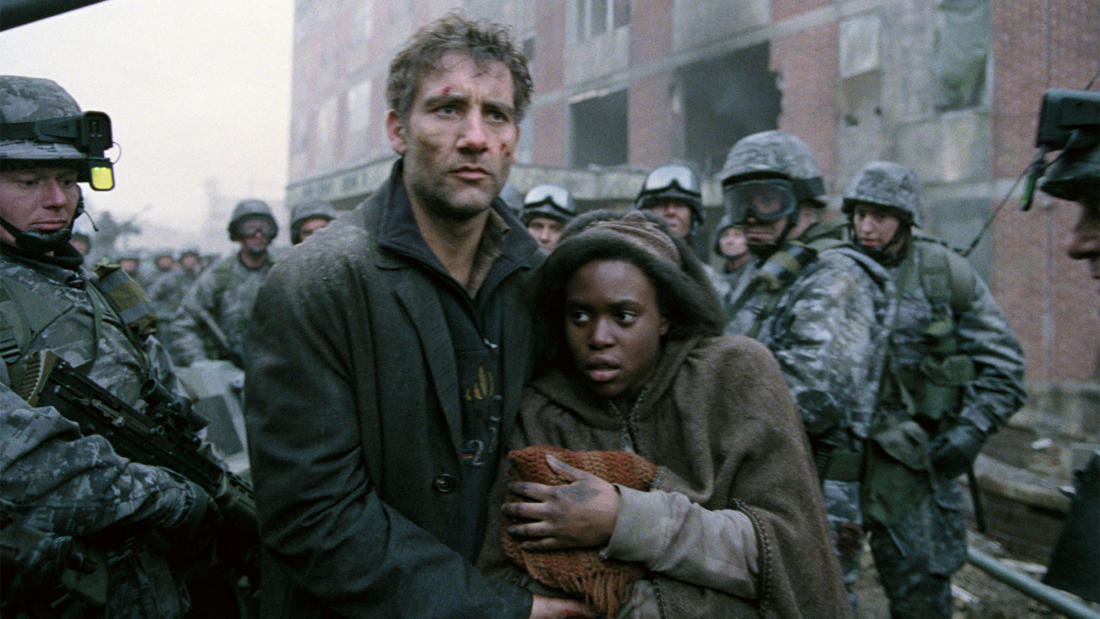
Gateway Film Center Columbus, OH
Dr. Sarah Hayford
Associate Professor, Department of Sociology, Ohio State University
Children of Men— Population Control and Human Health
Program Description
A presentation on population control and human health. Part of the 2016 National Evening of Science on Screen.
Presented At
Gateway Film Center Columbus, OH
Film Synopsis
In 2027, in a chaotic world in which women have become somehow infertile, a former activist agrees to help transport a miraculously pregnant woman to a sanctuary at sea.
It is the year 2027, and it has been 18 years since the last baby was born. Explosions erupt in cafes, surveillance cameras abound, armed guards roam the streets, and illegal immigrants are hauled into teeming refugee camps. Theo (Clive Owen), a jaded employee of the Ministry of Energy, tunes out the chaos that surrounds him, but finds his apolitical stance challenged by the reappearance of his former lover, Julian (Julianne Moore). Now the leader of an underground immigrant rights group, Julian pleads with Theo to help escort a young female refugee (Claire-Hope Ashitey) out of the country. After reluctantly agreeing to lend a hand, Theo discovers that the refugee is harboring a shocking, hopeful secret: she is pregnant. Adapted from the P. D. James novel of the same name, Children of Men was nominated for three Academy Awards.
About the Speaker
Dr. Sarah Hayford is associate professor in the Department of Sociology at Ohio State University. She received her MA and PhD in demography from the University of Pennsylvania and her bachelor’s degree in math and French from Amherst College. She studies childbearing and reproductive health in the United States and sub-Saharan Africa.
Dr. Hayford’s research considers family behavior as both an indicator of and a reaction to social change. Having children is determined by biological, economic, and practical concerns, but also by people’s ideas about what a family is and how to lead a good life. In turn, having (or not having) children has far-reaching consequences for individual happiness, health, economic status as well as the size and composition of the population. Dr. Hayford seeks to understand how individuals make decisions about childbearing, whether they are able to carry out these decisions, and how childbearing behavior influences both individual life outcomes and population dynamics.